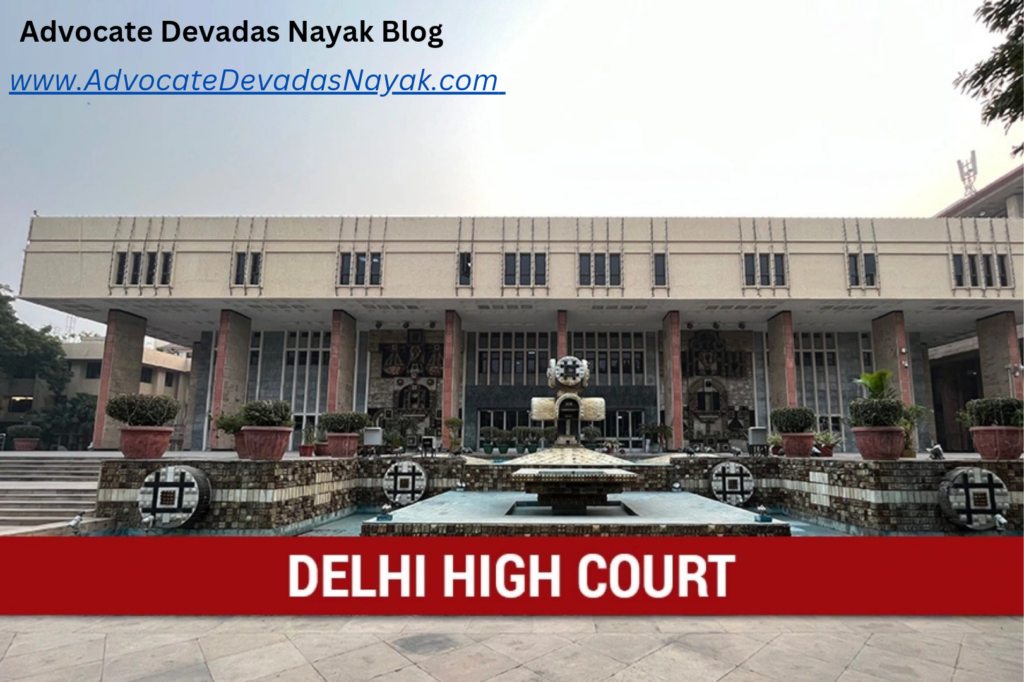
Introduction:In a significant ruling, the Delhi High Court addressed the complex issue of maintenance recovery, emphasizing the legality of maintenance arrears as a debt. The case, Vasu Bajaj v Rakesh Bajaj, highlights the challenges faced by dependents seeking maintenance and the legal avenues available for recovery.
Factual Background:The case originated from a suit filed by a guardian on behalf of a minor, seeking recovery of maintenance granted by the Family Court, totaling Rs. 2,78,800/-. Disputes between the parties, including allegations of domestic violence, underscored the urgency of the matter. Despite earlier legal proceedings and maintenance orders, the respondent failed to fulfill his obligations, prompting the appellant to seek legal recourse.
Legal Proceedings:An application under the Protection of Women from Domestic Violence Act, 2005, resulted in maintenance being granted for the appellant child. Subsequently, an Execution petition under Section 125(3) of the Criminal Procedure Code (CrPC) was filed to recover arrears. However, the petition was disposed of after the respondent tendered a partial payment.
Delhi High Court’s Judgment:The division bench set aside the previous judgment and ruled in favor of the appellant, granting maintenance at a revised rate of Rs. 2,05,000/- (Rupees Two Lakh Five Thousand only) along with pendent lite and future interest at 5% per annum till the date of realization. The court recognized maintenance arrears as a legal debt, emphasizing the appellant’s right to seek recovery through a civil suit.
Court Observations and Analysis:In its meticulous analysis, the Delhi High Court underscored the fundamental purpose behind maintenance provisions within the Criminal Procedure Code. The court acknowledged the imperative to prevent destitution and vagrancy, particularly among women and children who are dependent on their spouses for financial support. This recognition illuminated the broader societal context within which maintenance laws operate, emphasizing the intersection of criminal law with social welfare concerns.
Furthermore, the court scrutinized the interplay between maintenance as a civil right and its treatment within the criminal justice framework. It delineated the distinction between maintenance as a legal obligation and its transformation into a legal debt once judicially determined. This nuanced understanding elucidated the trajectory of maintenance claims, from their inception as civil rights to their crystallization as enforceable debts.
By delving into the legislative intent behind maintenance provisions, the court elucidated the underlying philosophy driving the inclusion of maintenance within the purview of criminal law. This holistic approach not only contextualized the legal framework but also underscored the paramount importance of safeguarding the financial rights of vulnerable individuals within society.In adjudicating on the applicability of civil remedies for maintenance recovery, the court navigated the complexities of jurisdictional boundaries. It underscored the primacy of judicial discretion in delineating the contours of legal remedies, particularly when legislative frameworks provide avenues for recourse but do not preclude alternative mechanisms for redressal.
Overall, the court’s observations and analysis in Vasu Bajaj v Rakesh Bajaj exemplify a judicious balancing of legal principles, societal imperatives, and equitable considerations. The judgment not only elucidates the legal intricacies surrounding maintenance claims but also reaffirms the judiciary’s role in upholding justice and safeguarding the rights of vulnerable individuals within society.
Conclusion:The Delhi High Court’s ruling in Vasu Bajaj v Rakesh Bajaj marks a milestone in maintenance law, emphasizing the legality of maintenance arrears as a debt and providing clarity on the legal recourse available to claimants. The judgment reinforces the court’s role in upholding justice and equity in matters of maintenance, ensuring the protection of vulnerable individuals within society.